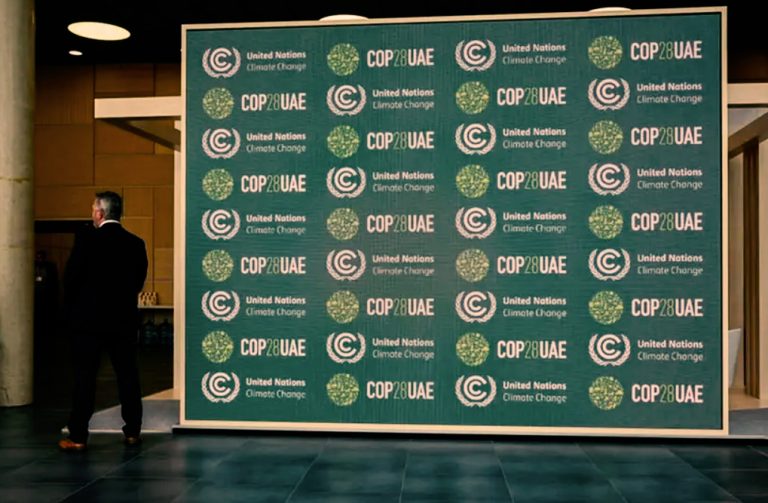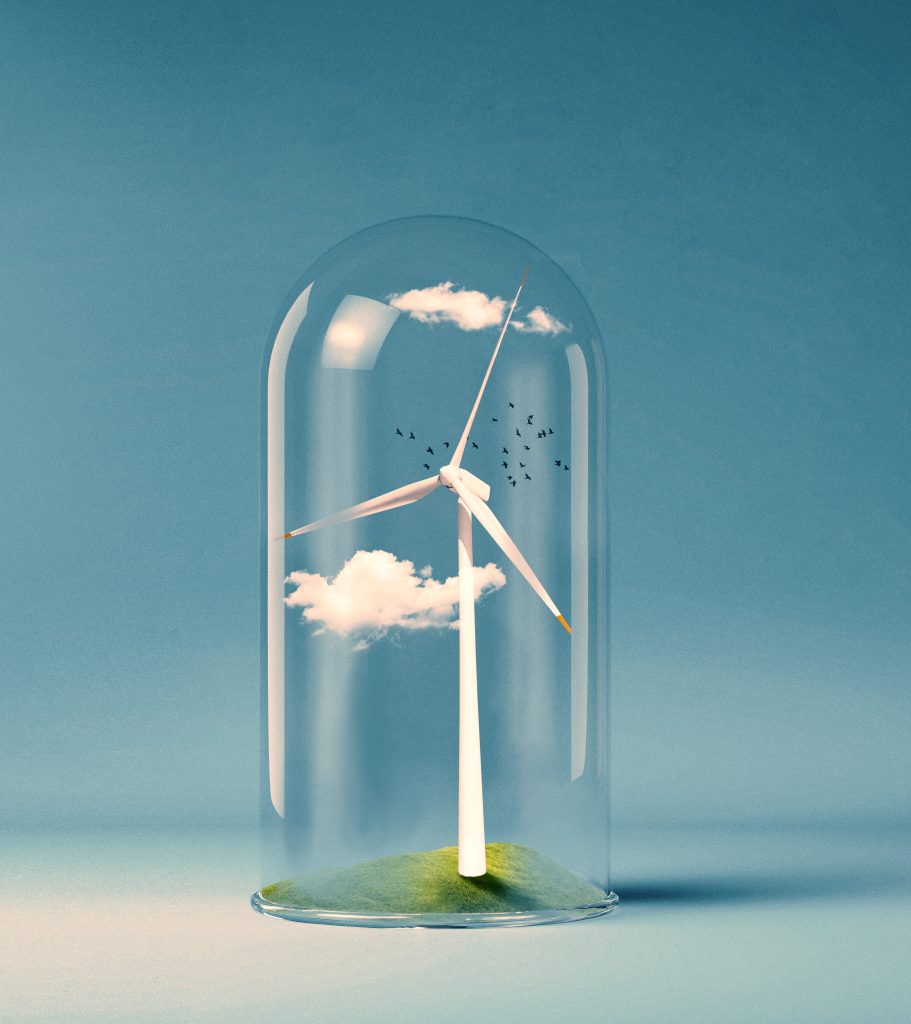COP 28
Dr. Fatih Birol, the Executive Director of the International Energy Agency (IEA), accurately described the UAE Consensus as a transformative force in the global energy transition. This momentous agreement, reached at the COP28 climate summit in Dubai, outlines critical measures to expedite the move away from fossil fuels and establish a cleaner energy future.
Key Highlights of the UAE Consensus:
- Transition Away from Fossil Fuels: The consensus urges countries to shift away from reliance on fossil fuels, with the goal of achieving net zero emissions by 2050.
- Renewable Energy and Energy Efficiency Goals: The agreement aims to triple global renewable energy capacity by 2030 and double the average annual rate of energy efficiency improvements by the same year.
- Methane Emissions Reduction: Substantial reductions in methane emissions are a priority under the UAE Consensus.
- Climate Finance Momentum: The UAE Consensus also provides a framework for advancing climate finance and establishing a new architecture in this domain.

This historic decision sets a clear direction for the global energy sector, emphasizing a just, orderly, and equitable transition. While the agreement is significant, it will require ongoing efforts and collaboration to transform this vision into reality. The IEA is committed to leading these endeavors, working closely with countries worldwide to achieve these ambitious goals.
Global Stock
COP28, held in Dubai, has concluded with a groundbreaking consensus that addresses the Global Stock take and presents a plan to bridge gaps by 2030. It calls on Parties to transition away from fossil fuels, pursue net zero emissions, submit comprehensive Nationally Determined Contributions (NDCs), and includes specific targets for renewable energy and energy efficiency. The summit also mobilized significant funding for climate action, secured agreements on Loss and Damage, advanced the Global Goal on Adaptation (GGA), and fostered inclusivity in climate action. Dr. Sultan Al Jaber, COP28 President, highlighted the need for a new approach and expressed pride in the historic achievements made during the summit. COP28 exemplified inclusiveness, ensuring that all voices were heard and engaged in the process.
The language utilized in the agreement adopted this morning stipulates that countries are committed to transitioning “away from fossil fuels in energy systems, in a just, orderly, and equitable manner, accelerating action in this critical decade, so as to achieve net zero in keeping with the science.” This marks the first instance at a COP where fossil fuels have been extensively discussed as a significant aspect of the negotiations. Secretary of State John Kerry stated during a press briefing on Wednesday that the decision resulting from these discussions unequivocally supports the move towards transitioning away from fossil fuels in energy systems, with the aim of achieving net zero emissions by 2050.
Summit's outcome
Concerns were raised by climate advocates regarding the potential influence of the United Arab Emirates’ ties to the fossil fuel industry on the summit’s outcome. COP28 President Dr. Sultan Ahmed Al Jaber also serves as the CEO of a state-run oil company. However, experts assert that while the final agreement may not be flawless, it sends a powerful signal that shifting away from fossil fuels will bring the world closer to achieving climate objectives.
During an event at the International Energy Agency’s (IEA) headquarters in Paris, COP28 President Sultan Al Jaber, along with other climate and energy leaders from various countries, discussed the priority actions necessary to fulfill the significant energy commitments made at the recent COP28 climate summit in Dubai. The objective was to ensure that governments continue to work towards limiting global warming to 1.5°C. The roundtable, hosted by IEA Executive Director Fatih Birol, featured high-level participants such as US Special Presidential Climate Envoy John Kerry, COP21 President Laurent Fabius, Danish Minister for Development Cooperation and Global Climate Policy Dan Jørgensen, German Special Envoy for International Climate Action Jennifer Morgan, Brazilian National Secretary for Climate Change Ana Toni, Azeri COP29 Lead Negotiator Yalchin Rafiyev, and UN Special Adviser to the Secretary-General on Climate Action and Just Transition Selwin Hart. Additionally, more than 50 Ambassadors from various regions and international thought leaders and energy industry executives were present.
Paris Agreement
The discussion primarily focused on the realization of the targets outlined in the UAE Consensus, a crucial agreement reached by nearly 200 governments at COP28. This consensus established new global goals for 2030, including accelerating the transition away from fossil fuels, tripling renewable energy capacity, doubling energy efficiency progress, and substantially reducing methane emissions. The participants emphasized the importance of achieving these targets to align with the Paris Agreement’s objective of limiting the average temperature increase to 1.5°C.
Dr. Fatih Birol emphasized the significance of the consensus reached in Dubai, stating that it holds great importance for the global clean energy transition. By advocating for a just, orderly, and equitable shift away from fossil fuels, with immediate action in this decade, it provides a clear direction for the global energy sector for the first time. Dr. Birol acknowledged that while this decision is historic, it will require extensive efforts in implementation and ongoing analysis of progress to achieve these goals. The IEA is fully prepared to take the lead in these efforts, collaborating with countries worldwide and future COP Presidencies to turn this vision into a reality.
Dr. Sultan Al Jaber expressed his gratitude to the IEA for their leadership and partnership in driving discussions on a just, fair, orderly, and responsible energy transition. He emphasized that this conversation has always been rooted in science and focused on keeping the 1.5°C target within reach. Dr. Al Jaber highlighted the need to maintain the momentum and traction achieved at COP28 in Dubai, transforming this unprecedented agreement into tangible and exceptional action and results. He called upon all stakeholders, both state and non-state actors, to step up and play their part.
key actions that must be taken in the coming year
The event participants identified several key actions that must be taken in the coming year, including securing additional financing for clean energy transitions, particularly in emerging and developing economies, and enhancing the next round of Nationally Determined Contributions (NDCs) under the Paris Agreement. Countries have commenced the process of setting climate goals that extend until 2035, which will significantly influence the pace of global greenhouse gas emission reduction.
Dr. Birol pledged to closely collaborate with the COP28 Presidency, as well as Azerbaijan and Brazil, which will host COP29 and COP30 respectively, in order to achieve these objectives. “Under our presidency for COP29, we eagerly anticipate a close collaboration with the International Energy Agency (IEA),” stated Mr. Rafiyev, Azerbaijan’s COP29 Lead Negotiator and Deputy Foreign Minister. He acknowledged the IEA’s crucial role in establishing global energy regulations and standards. In the upcoming COP29, the IEA will continue to play a vital role by monitoring our commitments and outcomes while providing essential research and policy assistance to the participating parties.
Secretary Toni expressed the hope that through joint efforts like Mission 1.5, the international community and organizations such as the IEA can assist countries not only in setting targets but also in developing plans to implement their Nationally Determined Contributions (NDCs). This collaboration aligns with the COP28, COP29, and COP30 Presidencies’ commitment to work together and ensure the 1.5°C goal remains achievable.
Dr. Birol outlined several actions that the IEA will undertake to lead the implementation of the COP28 agreement, as requested by ministers from IEA member countries at the recent Ministerial Meeting in Paris. These actions include monitoring and reporting on the COP28 commitments in collaboration with the United Nations Framework Convention on Climate Change (UNFCCC), supporting countries as they formulate the next round of NDCs, and facilitating the development of solutions to secure increased financing for clean energy transitions, particularly in emerging and developing economies
Dr. Birol also announced the launch of a new series of roundtables in partnership with the COP29 Presidency. Building on the success of the five High-Level Dialogues convened with the COP28 Presidency last year, these roundtables will provide an important platform for countries to share experiences and expertise as they navigate the complexities of developing new NDCs and transition plans. The discussions will help establish priorities leading up to the COP29 summit in November.
Global Energy Perspective 2023
According to the Global Energy Perspective 2023, investments in the energy sector are expected to grow from $1.5 trillion presently to between $2.0 and $3.2 trillion by 2040, representing a growth range of 35 to 120 percent. The report models various scenarios aligned with the Paris Agreement, including a 1.5°C pathway and alternative energy transition scenarios. These scenarios consider factors such as technological progress, policy enforcement, and costs across sectors, technologies, and fuels. They serve as a foundation of knowledge to inform decision-makers about the challenges and opportunities associated with the energy transition.

The energy transition is gaining momentum globally, as demonstrated by the UAE Consensus announced at COP28. This consensus called for key steps to be taken, including tripling global renewable energy capacity, doubling the rate of energy efficiency improvements, phasing down unabated coal power, transitioning to net-zero emission energy systems utilizing low-carbon fuels, and moving away from fossil fuels in an equitable manner. These actions are crucial to achieving the goal of net-zero emissions by 2050.
Transition accelerators have emerged, primarily driven by government support and investment in low-carbon technologies. Recent initiatives such as the Inflation Reduction Act in the United States, the European Union’s Green Deal Industrial Plan, and Japan’s green transformation plan aim to stimulate growth in low-carbon investments and technologies, further supporting the energy transition.
Transition challenges encompass various factors, including rising costs across the energy system due to the European energy crisis, cost inflation in renewable projects, affordability concerns, slower-than-anticipated progress in certain low-carbon initiatives like green hydrogen projects, changing public sentiment towards renewables, and ongoing demand for fossil fuels. Analysis from reputable sources such as the IEA, IPCC, and McKinsey indicates that even in a 1.5°C scenario, conventional fossil fuels are expected to remain part of the energy mix until 2050, potentially serving as a transitional bridge. The renewable sector has experienced cost increases for the first time in over two decades, attributable to escalating raw material costs and higher interest rates. Uncertainty looms over the pipeline of new wind, hydrogen, and carbon capture, utilization, and storage (CCUS) projects. In the past 24 months, only 10 gigawatts (GW) of wind projects have secured financing in the European Union, falling short of the annual 30 GW target required to meet climate commitments. Additionally, only 9 percent of hydrogen projects have reached final investment decisions (FIDs). The gradual phasing out of coal, the most carbon-intensive fuel without CCUS, is anticipated, with coal demand projected to decline between 25 and 85 percent from 2019 to 2050, depending on the scenario, primarily driven by the retirement of coal plants in the power sector across regions.
The UAE Consensus represents a significant milestone that transcends self-interest and establishes a new paradigm for global climate action. Let us explore its economic implications:
Transition Away from Fossil Fuels:
For the first time, there is a global agreement to transition away from fossil fuels in an equitable manner, aiming for net zero emissions by 2050. Although the consensus does not explicitly use the term “phasing out,” it emphasizes the importance of economy-wide emission reduction targets encompassing all greenhouse gases.
Clean Energy Investment:
The UAE Consensus highlights the necessity of investing approximately US$4.3 trillion per year in clean energy until 2030, with a subsequent increase to US$5 trillion per year, to achieve net zero emissions by 2050.
ALTÉRRA Fund:
As part of the consensus, the UAE has pledged US$30 billion to the ALTÉRRA climate finance fund. This fund aims to augment financial flows for emissions reduction in the Global South.
Adaptation Finance:
The Global Goal on Adaptation aims to provide financial support to countries that are disproportionately affected by climate change but have limited resources to address it. The final text emphasizes the need for continuous and enhanced international assistance to developing nations.
Loss and Damage Fund:
The operationalized loss and damage fund, with contributions totaling less than US$1 billion, provides assistance to vulnerable communities impacted by climate-related disasters. The UAE and Germany are the largest contributors, each contributing US$100 million.
In summary
UAE Consensus promotes a transition towards low-carbon industries, job creation, and sustainable growth. It signifies a collective endeavor to address climate challenges and seize opportunities for a greener future.
The impact of the UAE Consensus on the economy has been substantial since its launch in 2021. This collaborative economic initiative, involving both the government and the private sector, aims to bolster economic growth, diversify revenue sources, and enhance the country’s competitiveness. The Consensus revolves around five key pillars: economic growth, competitiveness, innovation, social cohesion, and sustainability.
One noteworthy outcome of the UAE Consensus is the accelerated diversification of the economy. The initiative has spurred investments in non-oil sectors, such as technology, renewable energy, tourism, and manufacturing. This shift reduces the country’s dependence on oil revenues and creates fresh opportunities for businesses and job seekers.

Moreover, the UAE Consensus has played a pivotal role in enhancing the country’s global competitiveness. Through a range of reforms and initiatives, the UAE has improved its business environment, streamlined regulations, and fostered innovation. These efforts have attracted foreign investments, stimulated entrepreneurship, and positioned the UAE as a hub for regional and international trade.
Furthermore, the Consensus places great emphasis on social cohesion and sustainability. The government has implemented policies to enhance social welfare, promote inclusivity, and support the well-being of both citizens and residents. Additionally, sustainable development initiatives, including clean energy projects and environmental conservation efforts, have been integral components of the Consensus, ensuring a greener and more sustainable future for the UAE.
Overall
UAE Consensus has had a positive and transformative impact on the country’s economy. It has driven economic diversification, improved competitiveness, fostered innovation, and prioritized social cohesion and sustainability. The ongoing commitment to these objectives positions the UAE for continued growth and prosperity in the years ahead.

